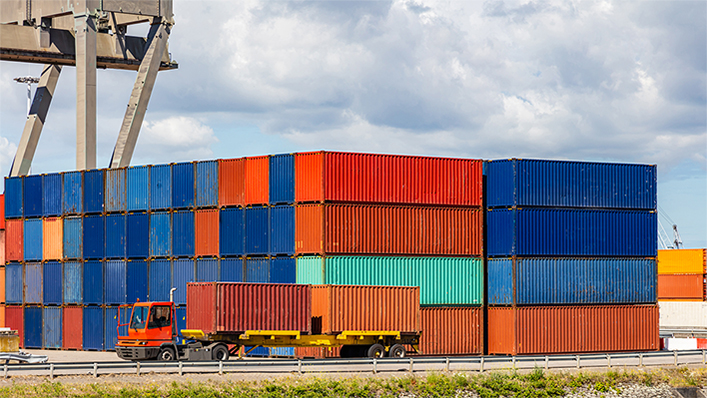
“In today’s complex and tariff-sensitive trading environment, the Customs Valuation Agreement is more critical than ever,” she said. “The way a product is valued at the border can be just as important as the tariff rate itself. Even a low tariff can result in significant duties if the customs value is high. That is why the CVA – by providing transparent and uniform rules – plays a foundational role in ensuring predictability for traders and stability for all members,” she said. “This standardization helps minimize costs and delays for developed and developing members alike by enabling traders to understand, in advance, how their goods will be valued,” she emphasized.
DDG Ellard underscored the Agreement’s forward-looking design, noting its introduction of market-based valuation principles and its emphasis on collaboration between customs authorities and the private sector. These features have become increasingly relevant in light of current challenges, such as digital trade, artificial intelligence and rapidly evolving global supply chains.
Looking forward, DDG Ellard acknowledged the new phase of challenges posed by rapid technological advancements. Digitalization, artificial intelligence and evolving trade dynamics require innovative interpretations and applications of the CVA. Customs administrations must adapt to these changes to ensure uniformity in the Agreement’s implementation amidst a volatile trading environment.
DDG Ellard called on the Committee to continue working with the World Customs Organization (WCO) Technical Committee on Customs Valuation, a partnership she said is indispensable for addressing the complexities introduced by digital trade and ensuring the CVA remains resilient and effective. DDG Ellard’s full remarks are available here.
The Committee also heard from a number of Customs experts. Santa Marianela Marte De Los Santos of the Dominican Republic noted that implementation of the CVA in her country has led to reduced time and costs for goods to clear customs.
Omar Cisse, an official from Senegal, underlined the importance of the Committee’s work on transparency while Lin Qianyu, Chairperson of the WCO Technical Committee on Customs Valuation, provided an overview of the Technical Committee’s work over the past 30 years and its close cooperation with theCVA. Kelly Morgero of the Federal Revenue Office of Brazil shared with members Brazil’s most recent customs valuation-related developments.
“I believe that our exchanges have provided us with a very valuable opportunity to highlight, and hopefully, learn from the various experiences of 30 years of implementing the Customs Valuation Agreement,” the Chair of the Committee, Sergio Prieto López (Spain), said in wrapping up the anniversary event.
Committee regular work
At the Committee meeting, the Chair updated members on the current notification status regarding customs valuation legislation. Under Article 22 of the Customs Valuation Agreement and the Decision on “Notification and circulation of national legislation in accordance with Article 22 of the Agreement”, members must submit the complete texts of their national legislation on customs valuation in one of the three official WTO languages. They should also inform the Committee of any changes in their laws and regulations relevant to this Agreement and in the administration of such laws and regulations.
Following the consideration of 34 specific notifications at the Committee meeting, the Chair noted that to date 119 members have notified their national legislation on customs valuation and 92 members have provided responses to a checklist of issues.
The Chair welcomed eight new notifications that resulted directly from the Customs Valuation Workshop on notifications organized by the Secretariat in May 2024 to assist developing and least-developed members with notifications.
The Chair also brought to the Committee’s attention a new WTO Secretariat report, “Notifications Status of Regular/Periodic and One Time Only Notifications in the Goods Area (1995-2024) (G/C/W/859)”.
The results from the report indicate that there is room for improvement with regard to the rate of customs valuation notifications, the Chair said. The rate of notifications under CVA Article 22. 1 – which are notifications of any changes in a member’s laws and regulations relevant to the Agreement – stood at 85.4% for 1995-2024. However, the report also shows that three CVA notification categories are among the five notification requirements with the lowest submission rates for one-time only notifications. These three categories are the Carrier Media Decision of the Committee on Customs Valuation with a rate of 47.4%, the Decision on Interest Charges of the Committee on Customs Valuation with a rate of 49.6% and the “Checklist of Issues” with a rate of 65.7%.
“This new report could provide an opportunity for the Committee to address the issue of outstanding notifications and to try to identify a means by which members can be assisted in fulfilling their notification requirements in a timely manner,” the Chair said.
Next meeting
The next meeting of the Committee is scheduled for 10 November 2025.
Share
Reach us to explore global export and import deals